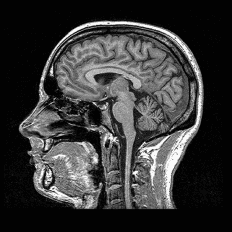COST & INSURANCE
Preventive care and check-ups in Switzerland: What does your health insurance cover?
11 November 2025

Written by
Ferdinand Skaugerum

Here’s the bottom line: No, your Swiss basic health insurance (Grundversicherung) will not pay for a preventive full-body check-up with MRI and blood tests.
The Swiss healthcare system is one of the best in the world after you have symptoms. Yet, basic insurance is only legally mandated to cover "medically necessary" treatments. This means tests are typically ordered only once a problem is already suspected. And while some insurers cover (parts of) preventative check-ups through supplementary insurance, many of them do not.
This leaves a crucial gap for health-conscious people who want to find silent risks before they become symptoms. You are left in a "wait-and-see" system, feeling healthy but worried about the unknown.
This article cuts through the confusion of what is paid by healthcare insurance and not. We'll look at the difference between basic and supplementary insurance, differences between cantons.
Is a preventive MRI and blood tests paid for by health insurance in Switzerland?
This is one of the most common questions we get, and the answer reveals the fundamental difference between reactive healthcare and proactive prevention. It all comes down to the two parts of your Swiss health coverage.
Understanding the Swiss split: Basic (Grundversicherung) vs. Supplementary (Zusatzversicherung)
Your health coverage in Switzerland is split into two distinct parts:
Basic (compulsory) insurance (KVG): This is the mandatory, legally required plan that everyone must have. Its job is to cover a defined list of services when you are sick, have an accident, or require specific, legally mandated screenings. It usually does not cover general check-ups on healthy individuals "just to be sure."
Supplementary insurance (VVG): This is the optional, private add-on you can buy to cover gaps. Some supplementary plans offer a "health" or "prevention" budget that you might be able to use towards a preventive scan.
Why your basic insurance says "no"
For your basic insurance to cover a test, it must be "medically necessary."
A doctor ordering an MRI for your knee after you complain of pain is medically necessary. A healthy person requesting a full-body scan to look for potential silent risks is classified as pure prevention. This type of proactive screening is not on the list of benefits covered by the law (KVG), as the system is designed to react to problems, not necessarily to search for them in seemingly healthy people. There are some exceptions to this, however, for including:
Gynaecological check-ups and smear tests, depending on the patient's age and risk factors
Basic vaccinations and flu vaccinations for high-risk groups
Colonoscopies for those at increased risk of colon cancer
Does my supplementary insurance cover preventative check-ups?
While your supplementary insurance is a potential path to partial reimbursement, it is not a guarantee. It is entirely dependent on your specific contract. You must check your personal policy documents for terms like "Prevention" or "Health check-up".
Why this matters: Do not assume you are covered. You must contact your provider and ask specifically:
"Do you contribute to a preventive full-body MRI scan at a private clinic, and if so, how much?"
"Do you contribute to a preventive blood scan at a private clinic, and if so, which tests and how much?"
This process can be complicated. With many health insurers in Switzerland, the contribution is minimal, which could be a driver for why no more than 44% of Swiss residents go regularly for preventive check-ups, and 30% never do (CSS, 2024).
To provide some clarity, we have compiled an overview of the most common preventative tests by medical area and target group, and the cost coverage for each.
A comprehensive preventive examination guide
Examination | Recommended Interval | Target Group | Cost coverage |
|---|---|---|---|
Cardiovascular screening | |||
Blood pressure |
| All adults | Only if symptoms or risk factors are present |
Cholesterol |
| Adults 40+ |
|
Abdominal aortic aneurysm | One-time screening | Men 65+ with family history | Partially, with a doctor's prescription |
Cancer screening | |||
Breast cancer |
| Women |
|
Cervical cancer |
| Women | Yes, as part of a gynaecological examination |
Prostate cancer |
| Men | No, only if suspected |
Colon cancer |
| Adults |
|
Skin cancer | As recommended based on risk | People with risk factors | Partially, in cases of documented risk |
Lung cancer | Every 1.5-2 years | Heavy smokers (50-80 years) | No, pure precautionary measures are not covered. |
Metabolic health | |||
Diabetes screening |
| Adults 40+ | Partially, in the case of risk factors |
Other important screenings | |||
Bone density |
|
| Partially, in cases of high risk |
Glaucoma | Individual, based on risk | From age 40 with family history | Partially, in cases of increased risk |
Note: Based on guidance of Swiss medical professionals and health insurance companies consulted by Ahead Health in 2025. "Partially covered" means that the insurance company may cover the costs if the doctor documents a medical necessity or risk factors.
Are there differences between the cantons? Yes, and they are relevant
Preventive care services are defined by law, but are not implemented uniformly in practice. Specifically, gynecological check-ups (including PAP smears) every 3 years, mammograms from age 50 for women at risk, colonoscopies from age 50 to 69, and recommended vaccinations, are covered by the basic health insurance.
However, implementation is federal and individual. There is no central authority that automatically invites everyone to attend screenings. Much depends on your canton, your doctor, and yourself. Some cantons have organized programs (such as for breast cancer screening), while in other regions you have to take action yourself.
Screening programs are regulated at the cantonal level
Health and preventive care in Switzerland is a matter for the cantons. Some cantons recognized early on that organized programs save lives and created appropriate structures (invitation centers, quality control, billing with health insurance companies, etc.). Others were more skeptical or argued about costs and benefits, so the approach remained piecemeal.
Differences in coverage by canton for selected cancer screenings
Canton | Breast cancer screening and coverage | Colorectal cancer screening and coverage |
|---|---|---|
BE, BS, FR, GE, GR, JU, NE, SG, SO, VD, VS, TI | ✅ Organized (with invitation) with up to 10% co-pay (ca. CHF 20) | ✅ Organized (with invitation) with up to 10% co-pay (FIT-test CHF 5; Colonoscopy CHF 50-170 / 10 year) |
AI, AR, TG | ✅ Organized (with invitation) with up to 10% co-pay (ca. CHF 20) | ❌ No program, or planned but not active; Franchise and deductible required |
BL, LU, UR | ❌ No program, or planned but not active; Franchise and deductible required | ✅ Organized (with invitation) with up to 10% co-pay (FIT-test CHF 5; Colonoscopy CHF 50-170 / 10 year) |
AG, GL, NW, OW, SH, SZ, ZG, ZH | ❌ No program, or planned but not active; Franchise and deductible required | ❌ No program, or planned but not active; Franchise and deductible required |
Colorectal cancer screening programs by canton

Breast cancer screening programs by canton

Source: Swisscancerscreening.ch
Breast cancer as an example
Let us take a prime example: Mammography screening. Unlike many countries, Switzerland does not have a national program, but leaves the decision to the cantons. The result: In 15 cantons, women between the ages of 50 and 69/74 are actively invited to undergo mammograms every two years, while in the remaining 11 cantons there is no official program.
The difference between the cantons becomes clear: Western Switzerland is involved in both major screenings, while some German-speaking cantons are still lagging behind. For individuals, this means that, depending on which canton you live in, you receive more or less support for preventive care.
In 2025, cantons in western and southern Switzerland in particular, such as Geneva, Vaud, Valais, Fribourg, Jura, Neuchâtel, Ticino, and individual German-speaking cantons such as Bern, Basel-Stadt, St. Gallen, and Thurgau, will offer organized mammography screening with invitation letters.
In central German-speaking cantons such as Zurich, Aargau, Lucerne, and Zug, however, there is no comprehensive program, and women must take action themselves. Accordingly, the participation rate in cantons with programs is often over 50%, while in others it is sometimes below 20%.
Which health insurer pays for preventative full-body MRI check-ups?
Insurance | Covers preventive MRI/Blood tests* | Coverage | Source |
|---|---|---|---|
KPT | Yes | Preventive MRI and blood diagnostics approved under Pulse Top (up to CHF 1’000) and Pulse Premium (up to CHF 1’500) per calendar year | |
AXA | Yes | ACTIV: 75%, max CHF 300 per calendar year COMPLET: 75%, max CHF 500 per calendar year | Terms and conditions, confirmed by AXA (February 2026) |
CSS | Yes | Covers 50%, up to CHF 1,000 every 2 calendar years depending on the insurance | Terms and conditions, confirmed by CSS (February 2026) |
Sanitas | Blood tests | Covers 80% up to 1'000 CHF every three years with Classic and Vital Smart | Terms and conditions, confirmed by Sanitas (February 2026) |
Visana | Yes | Covers 90% up to a maximum of CHF 600 every three years with Ambulatory III | Outreach to insurer |
Sympany | Blood tests | Standard medical check-ups and blood tests under Plus (up to CHF 300 per year) and Premium (up to 600 per year); MRI not included | Outreach to insurer |
ÖKK | Blood tests | Preventive screening and blood tests up to 90%, max CHF 300/year; MRI excluded unless medical indication | Outreach to insurer |
Atupri | Partially (blood tests, no MRI) | Covers 90% up to a maximum of CHF 500 per year with NATURA; MRI not included | Outreach to insurer |
SWICA | No | Outreach to insurer | |
EGK | No | Outreach to insurer | |
Helsana | No | ||
Concordia | No | Outreach to insurer | |
Assura | No | Outreach to insurer | |
Groupe Mutuel | No evidence of MRI coverage; blood tests included as per KVG | Insurer did not answer our request | Outreach to insurer |
*Note: Results as of November 2025 for Ahead Health's services specifically, based on available terms and conditions and outreach to insurers. For updated information, visit the insurer’s website. Ahead Health is not responsible for differences in coverage. We recommend contacting your health insurer directly, and are happy to provide you with a pro-forma invoice if needed..
Why invest in a scan your insurance doesn't cover?
If the standard system doesn't pay for it, is it worth it? For many, the answer is still a "yes." The value is about shifting from a reactive “wait-and-see” to proactive control and peace of mind.
Moving from a reactive system to proactive control
The current process of the standard check-up is often reactive, not proactive. It's typically triggered by reaching a certain age or having a family history of a specific disease, rather than by your desire for a complete and proactive health baseline. A visit to your GP could lead to a basic lab test, or even multiple visits to multiple testing locations, which then can result in referrals to different specialists, often with long waits in between.
A comprehensive check-up, on the other hand, built around advanced imaging and in-depth blood analysis, offers a powerful, proactive alternative. It is designed to complement and empower GPs in supporting your health, not replace their essential role, by providing a detailed, data-driven picture of your current health, giving them a bigger foundation to guide you on your health.
The power of early detection
The goal of a preventive check-up is simple: to detect silent risks (like early-stage tumors, aneurysms, or metabolic issues) when they are small and treatment is simplest and most effective.
The true value isn't just the scan; it's the "peace of mind" and the "clear next steps" you leave with, knowing you have done the most comprehensive thing possible to understand and protect your future health.
The healthcare expert’s perspective
According to Dr. Anna Erat MD, PhD, we're living in an era of what we call 4P-Medicine: predictive, preventive, personalised and participatory. Where we used to act reactively, we now want to act preventively and, above all, in a personalised way. To make that happen, it's important to establish a good baseline that allows you to make recommendations and act in a personalised way.
“Nowadays in preventive medicine, we want to triangulate methods. That means we want to use different methods to get a holistic picture of health status. Using different methods, or modalities of data, is very important and gives us much more information than with a traditional check-up using only medical history, a physical exam and a basic blood test.”
Your health, your decision
The Swiss system gives you the responsibility
The Swiss healthcare system is excellent, but it puts the responsibility for proactive, preventive care primarily on you. There is no central authority that automatically invites you to all the checks you might need. What you get, and when, depends on your canton, your doctor, and your own initiative.
What's the real cost of waiting?
A preventive scan costs a predictable set amount. You know what you are paying for. This might give you the insight you need to take control of your health and move forward with confidence.
At the same time there is sometimes an unpredictable and steep cost of not knowing conditions that could be prevented and be treated more effectively with an early diagnosis, or reacting only once potential symptoms arise. In addition it could mean stress, more invasive treatments, lost time, and a higher burden on your quality of life.
By taking a full-body preventive check-up, you pay a fixed financial cost with the goal to reduce uncertainty and get clear recommendations on next steps.











